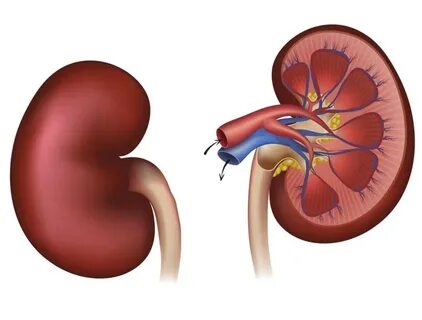CHRONIC KIDNEY FAILURE AND ITS TREATMENT
You have two kidneys. They are shaped like beans and each the size of a fist. They are located on both sides of the spine, near the middle of the back. Most people believe that their kidneys are only responsible for producing urine. The giandliverconsultants provide the best gastrointestinal consultants in USA.
In fact, the kidneys accumulate
urine and excrete it through the urinary tract. Excess water and toxins from
metabolic processes together with urine are excreted from the body as if
through a filter.
The kidneys also play an
important role in regulating blood pressure by producing hormones. Kidney
hormones, such as erythropoietin, control the production of blood cells in the
bone marrow. The kidneys also affect the amount of calcium in the blood and the
production of vitamin D. This vitamin is needed for mineralization, which helps
maintain bone strength.
What causes chronic kidney failure?
Acquisition of chronic kidney
disease (CKD) is a long, usually slow process, when the kidneys gradually lose
their function. At first, you may not notice that you have chronic kidney
disease. Early symptoms can be very mild, so you may not notice that you have
had symptoms.
The diagnosis of "kidney
disease" is usually made by blood tests, including urea nitrogen (BUN),
creatinine and glomerular filtration rate (GFR). The blood test estimates how
much blood passes through the glomeruli every minute. The glomeruli are tiny
filters in the kidneys that remove waste from the blood.
There are 5 stages in chronic
kidney disease. The disease can progress over years, ranging from near-normal
renal function (stage 1 CKD) to terminal stage (stage 5 CKD). The chronic form
is a permanent kidney injury caused, in particular, by diabetes or high blood
pressure (hypertension), various kidney infections (glomerulonephritis) and
excessive use of certain drugs that can impair long-term kidney function.
Because it is possible to slow
the progression of the disease in the early stages, early diagnosis and close
collaboration with a physician to prescribe the right treatment are vital.
Signs and symptoms
Preventive signs and symptoms of
chronic renal failure are not always obvious. Too many patients may suffer from
chronic renal failure without knowing it.
What signs can be considered warning?
·
Decreased urine production
·
Swelling: arms, face and legs
·
Dyspnea
·
Sleep disorders
·
Loss of appetite, nausea, vomiting
·
High blood pressure
·
Feeling cold and tired
The sooner you recognize these
symptoms, the sooner your doctor can intervene and find a cure. Proper care at
the right time can affect the progression of kidney failure.
What lifestyle changes can help?
In addition to various
treatments, lifestyle changes can reduce the progression of chronic renal
failure.
·
Blood pressure control, blood sugar control
·
Healthy food intake (low protein diet, or
limited salt intake)
·
Weight loss
·
30-minute aerobic workouts three times a week
·
Smoking cessation
·
Refusal of certain painkillers
·
But always follow your doctor's instructions and
follow medical advice before making any major changes.




Comments
Post a Comment